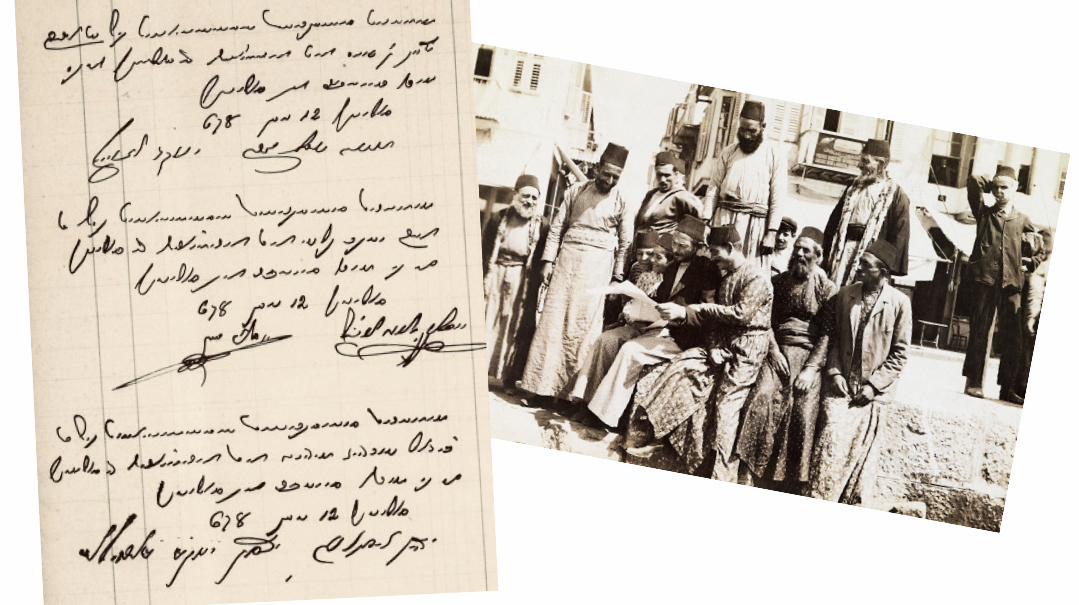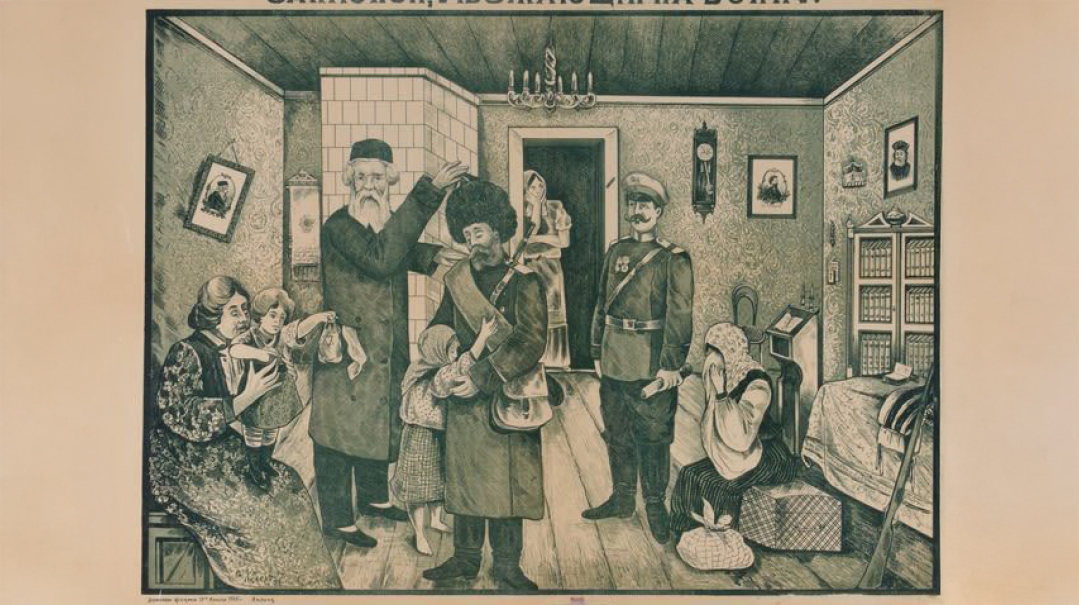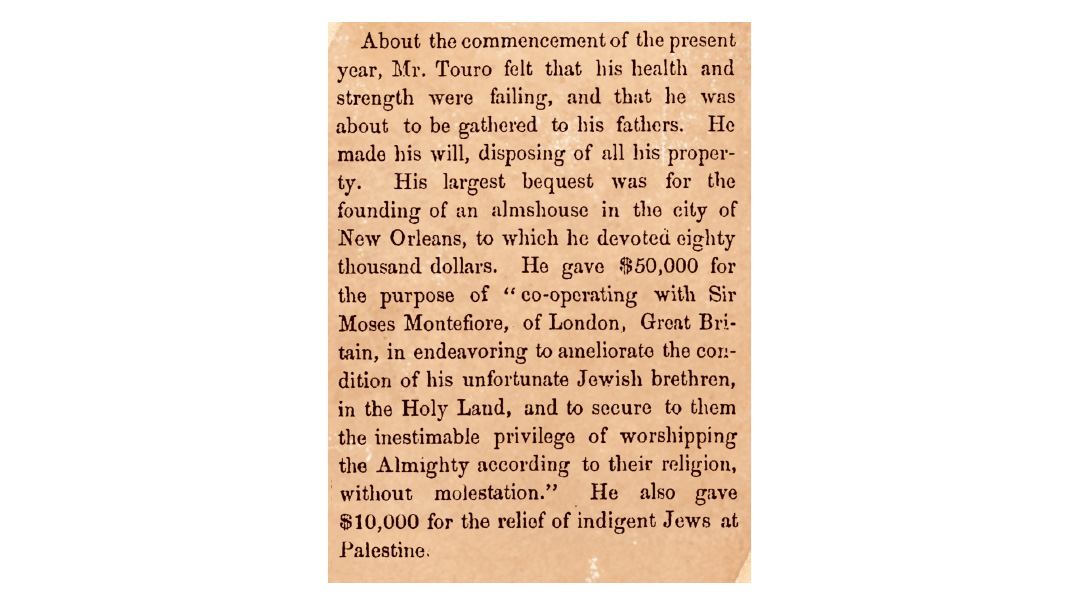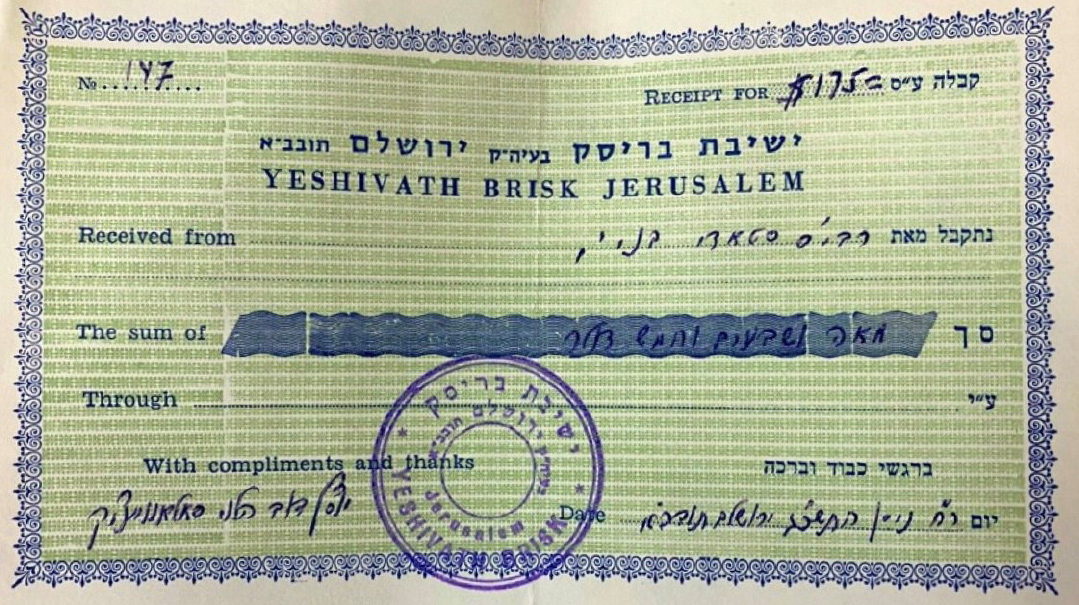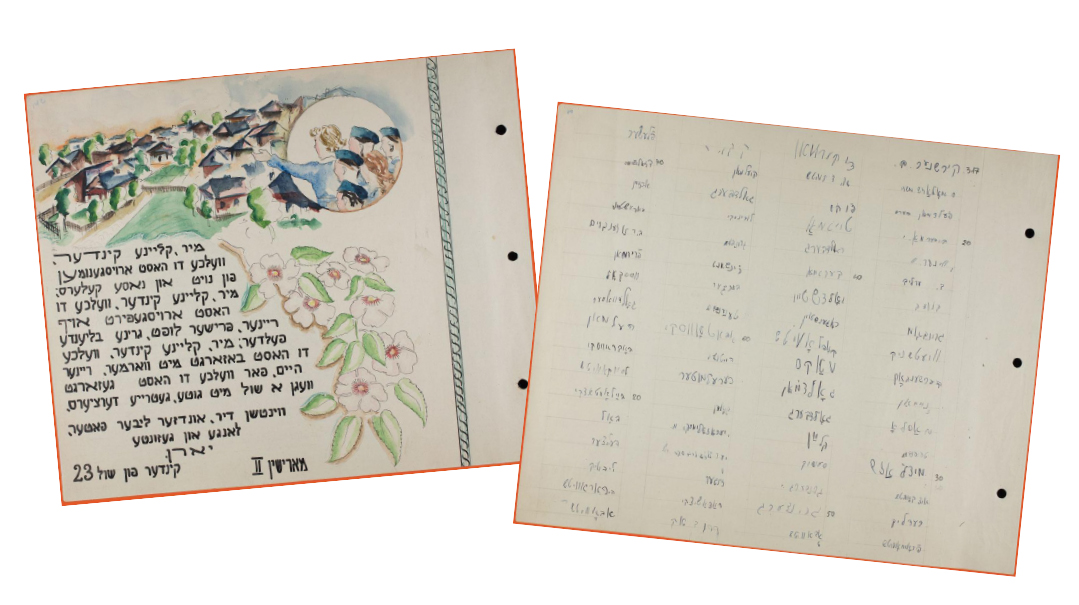The Humble Giant of Horodna
| January 4, 2022Rav Nochumke emerged as a gabbai tzedakah par excellence, devoting his energies to caring for other
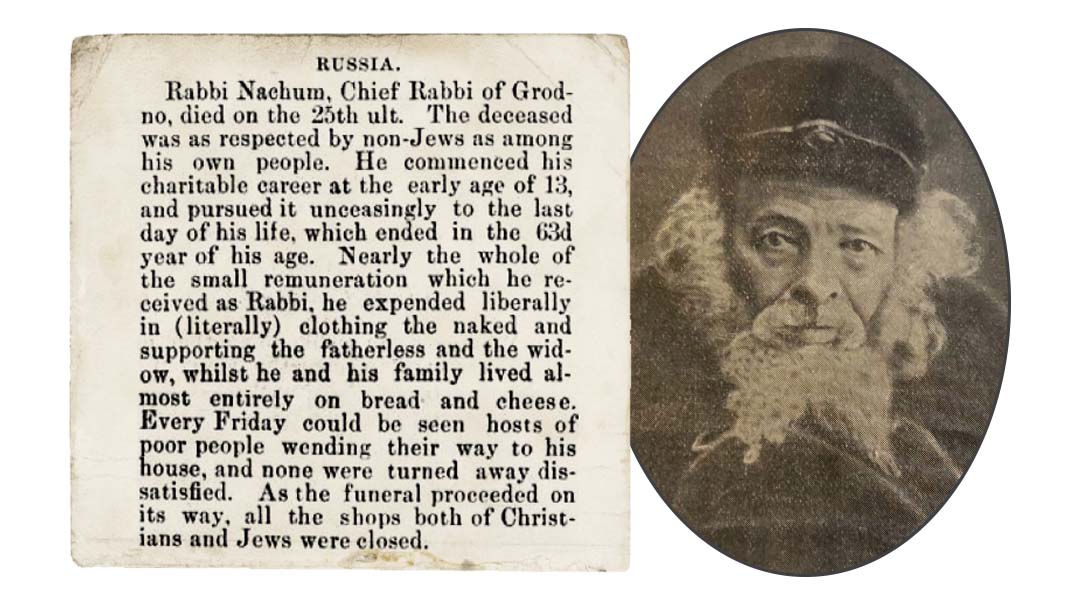
Title: The Humble Giant of Horodna
Location: Grodno, Russia
Document: The Jewish Advance (Chicago)
Time: 1879
Known as Rav Nochumke of Horodna, Rav Menachem Nochum Kaplan (1811–1879) was one of the most beloved tzaddikim of the 19th century. Born into a poor family near Shavli, he soon became one of the earliest students at the Mir Yeshivah, under the aegis of its founder Rav Shmuel Tiktinsky, before going on to study in the great Volozhin Yeshivah.
When he settled in Horodna (today Grodno, Belarus), he didn’t desire to serve in an official rabbinical position and instead became the shamash of the local Beis Medrash Chevra Shas. Ostensibly a simple shamash, he was a phenomenal talmid chacham who spent the majority of his hours studying Torah and acting as a one-man chesed and tzedakah organization. He delivered several daily shiurim to the laymen of the town, all without remuneration.
Rav Nochumke emerged as a gabbai tzedakah par excellence, devoting his energies to caring for others. He suffered greatly in his own personal life, losing more than a dozen children to various illnesses. Nevertheless, among the myriad acts of kindness he carried out for decades were raising money for the needy, acting as a father to many orphans, obtaining firewood for those who couldn’t afford it, and secretly providing for the talmidei chachamim of the town. His modesty made him a paradigm of purity and holiness, and he became legendary throughout Lithuania.
One of Rav Nochumke’s admirers was an aspiring talmid chacham in nearby Radin named Rav Yisrael Meir HaKohein, soon to be known to the world as the Chofetz Chaim. While still in his twenties, the Chofetz Chaim fell ill from the physical strain of constant application to Torah study. The doctor advised him to abstain from study for a period of time in order to regain his strength. This caused the Chofetz Chaim much anguish, and he poured out his heart in notes he sent to the tzaddik of the generation, Rav Nochumke.
Rav Nochumke’s son-in-law, Rav Gavriel Wolf Margolis, related that in 1866, he noticed a note lying on the table at his father-in-law’s home. It read as follows:
I implore your honored holy self most earnestly to pray for me that the blessed Creator should strengthen my heart so that I may be privileged to serve Him truly and with a whole heart. I know how little is my worth, for I am both an unintentional and a deliberate sinner. Written with a broken, sorrowing, sore-pressed heart, Yisrael Meir ben Rav Aryeh Zev HaKohein from Radin
Rav Nochumke explained that he received letters from him on a regular basis. And then he predicted, “This is a first-rate, keen young Talmudic scholar, with a great mind, who is given to mighty deeds.”
Pay for Play
Zvi Hirsch Masliansky shares a story in his memoirs that he heard from the Kelemer Maggid about Rav Nochumke: He’d make the rounds of inns where cards were played, and take some of the money on the tables for charity. The card players knew him and his strange custom and would donate liberally. Arriving at an inn where he wasn’t known, he approached the table to take the money, and one of the players jumped up and slapped his face.
Rav Nochumke calmly said, “That was for me, now what will you give for the poor?”
This made a strong impression on all present and they made handsome donations. The man who slapped Reb Nochumke got down on his knees and begged forgiveness.
Tzaddik, Tzaddik on the Wall
Rav Nochumke had the rare distinction of having his picture hung in many Jewish homes in Lithuania. The Chofetz Chaim himself kept a picture of Rav Nochumke handy, and would show it to family members when discussing the great deeds of his mentor.
The Jewish Advance was a short-lived English- and German-language newspaper published weekly in Chicago between 1878 and 1881. The newspaper was edited by Vilna native Tzvi Hirsch (Henry) Gersoni (1844–1897), a tragic figure who attended the Rameilis yeshivah and studied in the Vilna Gaon’s kloiz in his youth before leaving the fold and “progressing” as far as intermarriage. Regretting his apostasy and subsequent involvement with missionaries, he wrote a letter to the HaMaggid newspaper in which he expressed his regrets and asked for the forgiveness of his fellow Jews. Returning to his faith, he faced the persecution of the Church and escaped to America, where he served as the editor of the country’s first Yiddish newspaper, Di Post, in 1870, among other journalistic and literary projects.
(Originally featured in Mishpacha, Issue 893)
Oops! We could not locate your form.

